Introduction of Gaseke Coffee processing Plant in Gesak, Rwanda _ recommendation of fine washed coffee beans in Rwanda
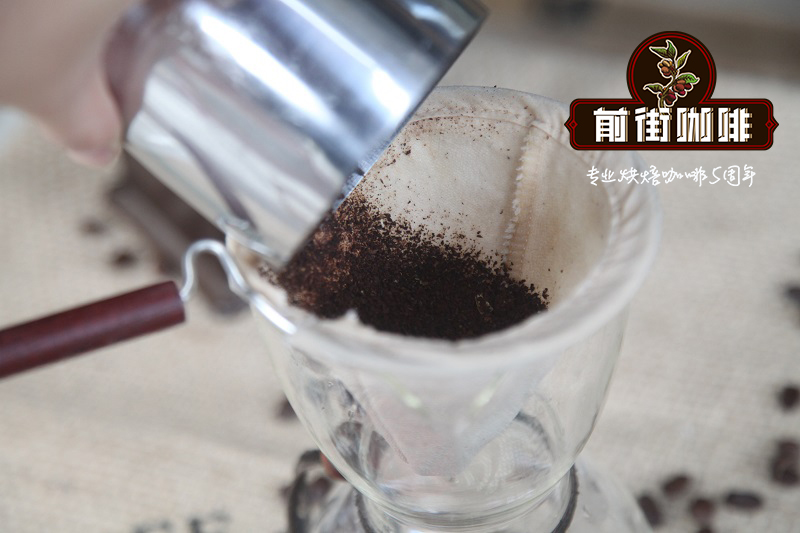
Professional coffee knowledge exchange More coffee bean information Please pay attention to coffee workshop (Weixin Official Accounts cafe_style)
This micro-batch coffee from Rwanda is the best batch, which is the first point that the front street likes. In addition, Rwanda has a small coffee production, but its quality is not bad. This Rwandan is washed, bright and clean in acidity and taste, nutty and dark plum flavor in cup test, bright acidity, mild acidity compared to Kenya, overall taste tends to be balanced. Low temperature has a prominent sweet feeling, can be regarded as a good bean.
Rwanda Gesek microbatches
Coffee producing area: Nyamasheke district, western Rwanda
Altitude: 1500m
Coffee varieties: Kadura, Kaduai, Bourbon
Treatment method: washing treatment method
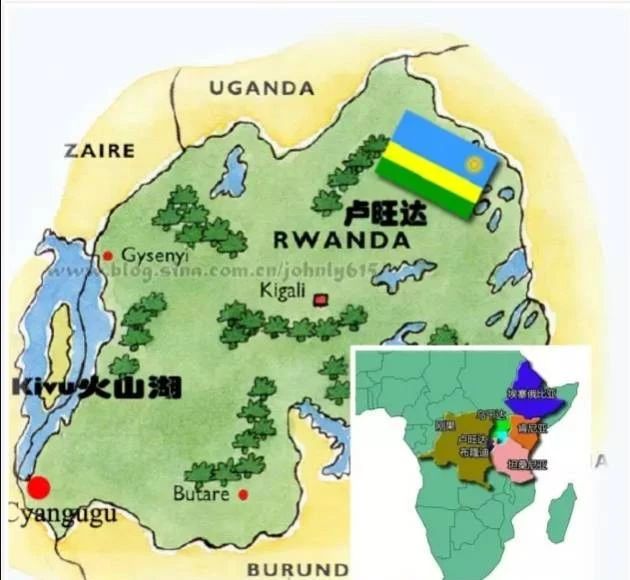
- Coffee producing areas-
Rwanda is currently one of the most concerned coffee producing countries in the front street. Rwanda is blessed with an ideal coffee growing environment, including high altitude, stable rainfall, volcanic soil, organic environment, and a very prosperous bourbon bean seed. Rwandan coffee uses virtually no chemical fertilizers or pesticides. Fertilizers in the soil come from natural mulch on the ground, as well as traditional fertilization methods. The vast majority of Rwandan coffee is produced by smallholder farmers, some 500,000 of whom own less than one hectare of farmland. Although Rwanda has a long history of coffee production, it has only recently seen significant improvements in quality, with different climatic, soil and growing conditions in different regions. Because many coffee trees are grown in the mountains between 1700 and 2000 meters above sea level, Rwanda is also known as the "country of thousands of mountains."
Rwandan coffee is a world-class treat because it is balanced and crisp compared to Kenyan coffee and can rival Central American coffee. Generally speaking Rwandan coffee has a bright acidity reminiscent of orange or tropical fruit aromas. To name a few differences, Front Street indicates a difference in intensity, with Kenya's coffee giving a thicker texture, while Rwanda's coffee feels slimmer and smoother.
- Nyamasheke district in the west-
Nyamasheke, a province in western Rwanda near Lake Kivu, is known for its rich, complex and sweet coffee. Green bean vendor Nordic Approach has invested considerable effort in Nyima Shek over the past few years, conducting many experiments with local coffee farmers, and this batch is the result of the experiment.
The coffee farms near Lake Nyima Shekkivu are very small, mostly between 1700 and 2000 meters above sea level. After being sent to different washing plants, they are peeled and pulped, and then dry fermented before being sent to running water ditches for grading, washing and soaking, which is very similar to Kenyan washing.
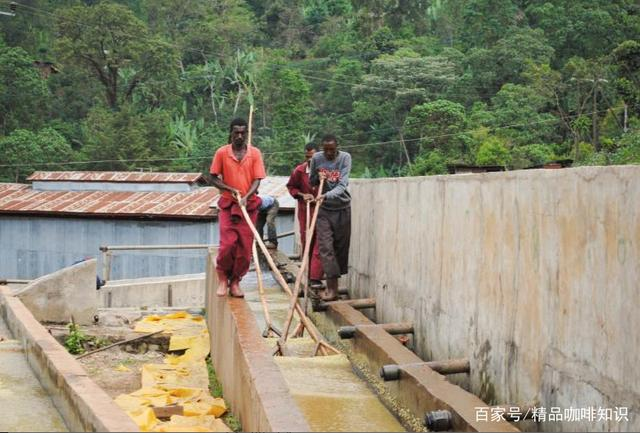
- Gaisek washing plant-
Fidele Ndagijmana, a young trader in Nyamasheke, saw the potential of Rwanda's fine washed coffee. He applied to the government for the construction of this processing plant. In the first year, he successfully produced 170 tons of coffee berries. He used the low season to improve and expand the production equipment. When the next harvest season came, he could provide better production machinery and better storage environment. This excellent trader also secured for himself more land near the processing plant to grow.
- Water treatment-
One of the most commendable things about Rwandan coffee is that after the coffee cherries are harvested, farmers pick out the green cherries first. Then, the ripe cherries are separated in the washing tank, and only the red cherries are sent to the husker. Depending on the weather conditions at the time, the remaining pectin coffee cherries will ferment for 24-48 hours. The purpose of fermentation is to avoid spoiling the coffee flavor. The clean remaining sheepskin coffee beans are then sent to dry. All coffee is dried on a net bed for 15-22 days, leaving about 11% moisture. When the weather is too hot, farmers must cover them with a cloth. Otherwise, the drying process will be completed prematurely.
The best Rwandan beans should have a white skin and no cracks if the drying process is completed in time. This allows more organic compounds to be retained, and the shelf life can be extended while the taste is good. Rwandan coffee beans grown at high altitudes are generally sweet and dense when treated with full water washing.
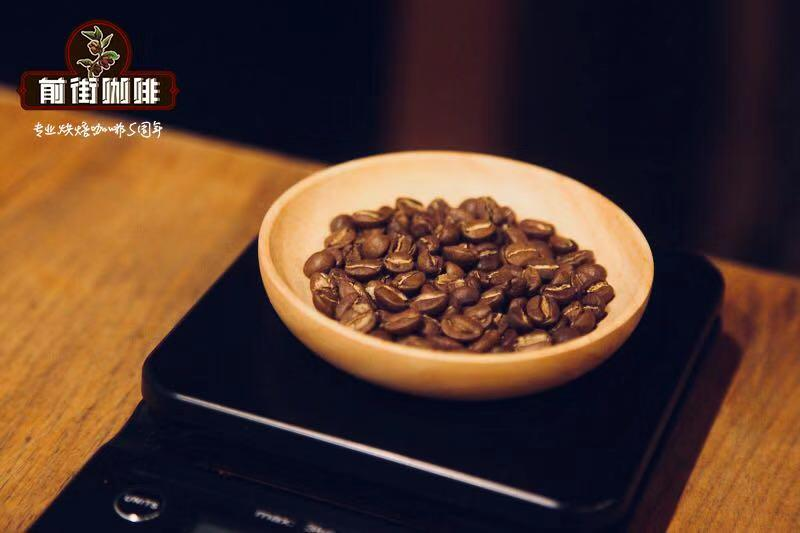
- Microlots-
What are microlots? That is, from a batch of beans that are already doing well, we further select the beans that perform best. In the simplest terms, it is to select the best beans from a batch of beans that have already performed well. Before entering the market, pick out the better quality parts so that the profits from selling can be higher. On the one hand, it satisfies the increasingly picky taste buds in the single-item coffee industry; on the other hand, it also helps farmers produce coffee beans to enter the fine coffee market and establish their own high-quality image.
There are many ways to "pick out" microbatches, such as separating coffee beans from others because of today's better weather conditions, or separating one farmer's production from others because of his good fertilization skills, and so on. It could be today's special rule that only ripe fruit should be taken, and then double the labor to pick out impurities and defective products; it could even be a high-risk attempt, such as deciding whether to change to other varieties with better flavor.
Front Street Coffee purchased microbatches of coffee beans from Nyamasheke district in western Rwanda. Coffee beans grown in the western Nyima Shek region reflect the bright citrus acidity of Rwandan coffee beans and the balance, fineness and smoothness of coffee.
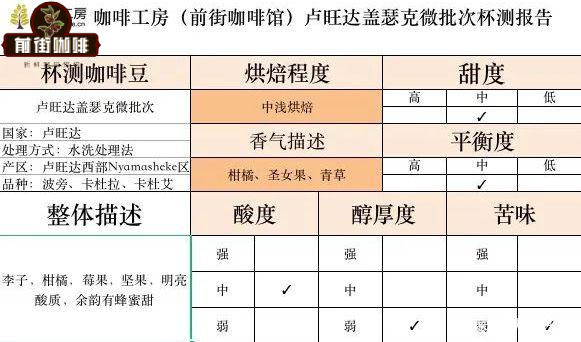
- Cup flavor test-
Flavor: Citrus, Berry, Plum, Nutty, Honey, Tea.
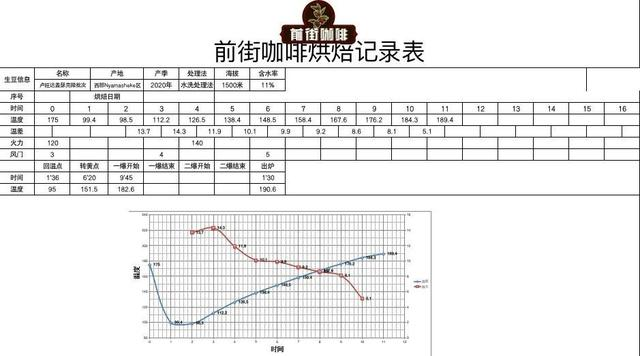
- Baking advice-
- Brewing parameters-
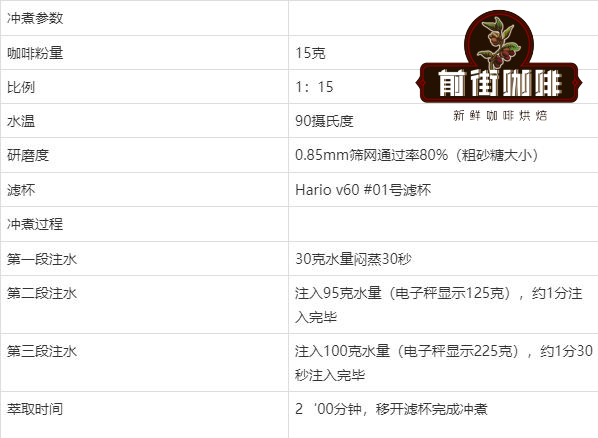
Flavor description
Aromas of cherry and citrus. On the palate, citrus, berry and plum are evident, with nutty notes in the middle and honey sweetness in the finish.

END
Important Notice :
前街咖啡 FrontStreet Coffee has moved to new addredd:
FrontStreet Coffee Address: 315,Donghua East Road,GuangZhou
Tel:020 38364473
- Prev

Manual pulping parameters of bourbon coffee in the western province of Rwanda. Introduction to the producing areas of Rwandan coffee beans
Professional coffee knowledge exchange more coffee bean information please follow the coffee workshop (Wechat official account cafe_style) Rwanda coffee western province Monchamus Hamuyi processing plant work together to batch sunburn bourbon species Rwanda West Province Mashesha CWS Bourbon Natural country: Rwanda Rwanda production area: Western province West Province processing plant: Monseha
- Next
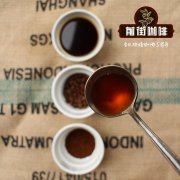
Zhang Zhiming Coffee Supreme Rwanda Gatare Coffee beans introduction _ Gatare Farm Information
Professional coffee knowledge exchange more coffee bean information please follow the coffee workshop (Wechat official account cafe_style) this Supreme not that Supreme Coffee Supreme has nothing to do with the popular New York skateboard street card Supreme, but it is also cool. Born in Coffee Supreme, New Zealand in 1993, the first store opened in the capital Wellington, and then in succession.
Related
- Detailed explanation of Jadeite planting Land in Panamanian Jadeite Manor introduction to the grading system of Jadeite competitive bidding, Red bid, Green bid and Rose Summer
- Story of Coffee planting in Brenka region of Costa Rica Stonehenge Manor anaerobic heavy honey treatment of flavor mouth
- What's on the barrel of Blue Mountain Coffee beans?
- Can American coffee also pull flowers? How to use hot American style to pull out a good-looking pattern?
- Can you make a cold extract with coffee beans? What is the right proportion for cold-extracted coffee formula?
- Indonesian PWN Gold Mandrine Coffee Origin Features Flavor How to Chong? Mandolin coffee is American.
- A brief introduction to the flavor characteristics of Brazilian yellow bourbon coffee beans
- What is the effect of different water quality on the flavor of cold-extracted coffee? What kind of water is best for brewing coffee?
- Why do you think of Rose Summer whenever you mention Panamanian coffee?
- Introduction to the characteristics of authentic blue mountain coffee bean producing areas? What is the CIB Coffee Authority in Jamaica?

